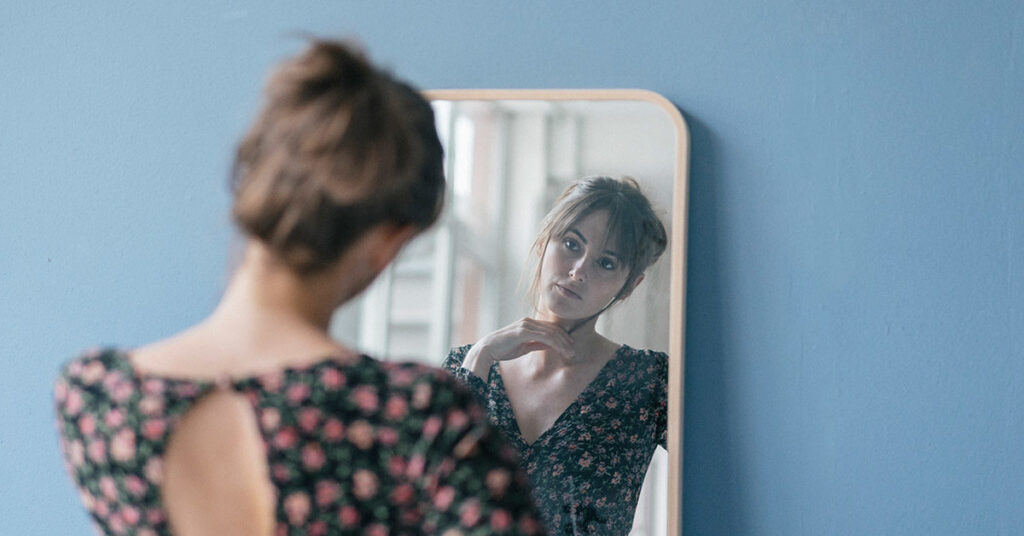Do you ever feel like you are losing yourself to a relationship? Does it sometimes feel like you are pouring all your time and energy into a friendship to the point where you are losing your sense of self?
You’re not alone. Researchers writing in the Journal of Social and Personal Relationships have found that intensely close friendships can lead to a small but perceptible loss of identity. The study, which surveyed a small group of people, found that you take more time distinguishing between your face and an intimate friend than you do a celebrity’s face.
The research confirms what previous studies have posited: that friendships can become a tightly knit part of your own identity. You share memories and milestones, sometimes your thoughts and tastes begin to align. It’s why close friends can end up buying the same dress from ASOS. Think of it as your personality cycles syncing up.

So far, so sweet, right? But there’s a dark side to the enmeshing of lives that is a close friendship. For every intimate and equal partnership there’s an unequal opposite. It’s in these relationships that the loss of self takes on a more sinister turn.
As one friend does all the companionship heavy lifting, organizing every brunch and listening to every single grievance in their friend’s life, they start to sacrifice their sense of self and needs while receiving nothing back. This is friendship as self-abnegation.
Isabella, 28, experienced a friendship like this when she was a teenager. In the early years of high school she began spending time with a bunch of girls who called themselves her ‘friends’ but were “honestly awful”,
“The ringleader would belittle and gaslight us and it made for an extremely competitive and stressful friend group dynamic,” Isabella recalls. And yet, Isabella continued to devote time and energy to these relationships, working desperately hard for their approval. It wasn’t until her mother sat her down and talked to her that Isabella realized how she was losing her sense of self to the relationship. “I’d become a shell of myself,” she admits. Soon afterwards she met a new group of friends that she remains close with to this day.
Isabella’s example is an extreme, toxic one, but it’s possible for even the best, closest friendships to turn sour.
For Tess, 34, it took a wedding and a turn as a bridesmaid for one of her best friends to realize how much of herself she had lost in pursuit of another woman’s love. “I spent a year completely miserable, trying to be a good bridesmaid for my friend,”

She answered her friend’s every whim, going above and beyond what was asked of her to make sure her friend had a special day. When the big day finally rolled around the bride didn’t thank Tess for her hard work, which made Tess feel even worse about herself.
After the wedding was over Tess decided to gift herself some time off from the relationship and stopped texting her friend for catchups. “I didn’t hear from her for ages,” she says. “I wasn’t surprised, but I was upset.”
In the intervening months between seeing each other Tess rediscovered some of her self-confidence and was able to tell her friend how used and ill-supported she had felt. Today, she says, their relationship is on a more equal footing, “but I don’t think we’ll ever be as close as we had been,” Tess admits.
Realizing that you’re knee-deep in a toxic relationship is the first step. Understanding the impact that it is having on your sense of self is the next.
“When you accept poor treatment from someone, it is usually because you don’t value yourself or have high self-esteem to begin with,” Kelly Campbell, an associate professor of psychology at California State University has said. “Keeping those people in your life can further decrease an already fragile sense of self.”
Weeding out toxic friendships is hard and requires a strong sense of self to begin with. Follow Tess’ example and give yourself distance from a difficult relationship before cutting it out. Do as Isabella did and use that distance to think about what a good, healthy friendship looks like to you.
“I’ve always thought of it as two people both reaching across the divide and meeting in the middle,” Isabella says, of friendship. “Two people both being there to support each other, regardless of time or distance. Knowing in the worst and most painful moments in life that you have an unwavering support system who will back you no matter what the circumstances is truly priceless.”
Think of it this way: a true friend isn’t someone who will leech onto you. They’re not someone who will demand so much of yourself from you. The best kind of friend is resolutely their own person, and wants you to be, too. Instead of occupying the same space as you they’ll stand right beside you, in support.
Posted by Stylist.co.uk. Hannah-Rose Yee







More Stories
Who is the hunter and who is the prey in the drug game of death?
Is the sun about to set on the British Raj forever?
How are people winning crores of rupees by forming a dream app team?